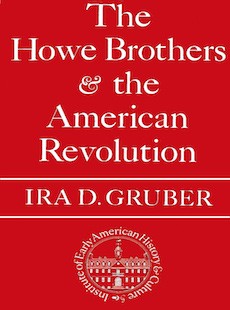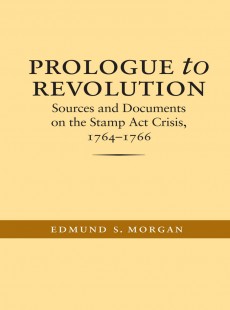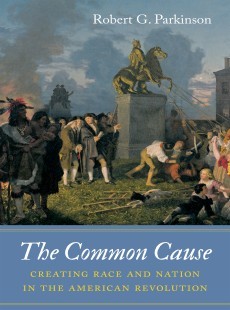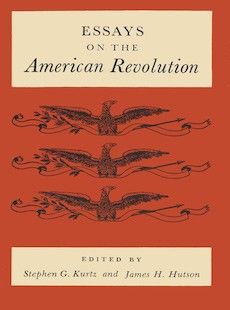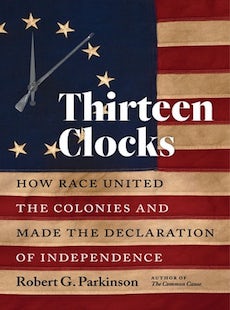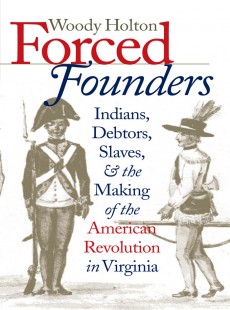
Forced Founders
Indians, Debtors, Slaves, and the Making of the American Revolution in Virginia
Woody Holton
 Publisher: Omohundro Institute
Publisher: Omohundro Institute
Imprint: OIEAHC
Published: 09/1999
Reprint: 1999
Pages: 256
Subject: African American Studies,Native American/Indigenous Studies,Colonial, Revolutionary Era & Early American History
Paperback ISBN: 9780807847848
eBook ISBN: 9780807899861
DESCRIPTION
In this provocative reinterpretation of one of the best-known events in American history, Woody Holton shows that when Thomas Jefferson, George Washington, and other elite Virginians joined their peers from other colonies in declaring independence from Britain, they acted partly in response to grassroots rebellions against their own rule.
The Virginia gentry's efforts to shape London's imperial policy were thwarted by British merchants and by a coalition of Indian nations. In 1774, elite Virginians suspended trade with Britain in order to pressure Parliament and, at the same time, to save restive Virginia debtors from a terrible recession. The boycott and the growing imperial conflict led to rebellions by enslaved Virginians, Indians, and tobacco farmers. By the spring of 1776 the gentry believed the only way to regain control of the common people was to take Virginia out of the British Empire.
Forced Founders uses the new social history to shed light on a classic political question: why did the owners of vast plantations, viewed by many of their contemporaries as aristocrats, start a revolution? As Holton's fast-paced narrative unfolds, the old story of patriot versus loyalist becomes decidedly more complex.
LEARN MORE ABOUT THIS BOOK
ABOUT THE AUTHOR
Woody Holton is assistant professor of American history at the University of Richmond.
AWARDS
The Fraunces Tavern Museum Book Award, Fraunces Tavern Museum (2000)
REVIEWS
"A challenging reconstruction of the trajectory which carried Virginia's gentlemen revolutionaries from resistance to independence. It will be appreciated by serious scholars of Virginia's revolutionary period; its lively style and wealth of anecdotes will make it an enjoyable read for anyone."
--Journal of American Studies
"This may be the most important book on the political culture of Revolutionary Virginia since Rhys Isaac's The Transformation of Virginia, 1740-1790. It is certainly the most provocative."
--Journal of Southern History
"The main strength of Holton's book is his effort to place the actions of the Virginia gentry within a more detailed local context and to see them as actors who were responding to the material concerns that governed their everyday lives."
--Law and History Review
"Holton does more than transfer a familiar neo-progressive narrative of the coming of the Revolution to Virginia. . . . [He] portrays the coming of the Revolution in Virginia as deeply bound up with competing social groups--planters, farmers, Indians, slaves, and British merchants--all of whom pursued their own interests. His social history of a revolution emerging out of these struggles rather than out of civic humanism or disputes surrounding the imperial constitution complements Rhys Isaac's interpretation of cultural conflict in revolutionary Virginia."
--American Historical Review
"This book gives us a brisk and convincing analysis of a region--and revolutionary leaders--we thought we already knew. Given the threats they faced, we can only marvel that those uneasy leaders ever succeeded in such a desperate feat as making a revolution in such a dangerous and divided region. As Holton shows us, they were forced to."
--Journal of American History
"A fascinating reinterpretation of the coming of the Revolution in Virginia. . . . Each vividly detailed and keenly argued section of the book demonstrates how a diverse collection of ordinary men and women pushed Virginia's leaders to declare independence. . . . Holton's powerful and innovative book should influence the study of the American Revolution for years to come."
--Virginia Magazine of History and Biography
RELATED TITLES





